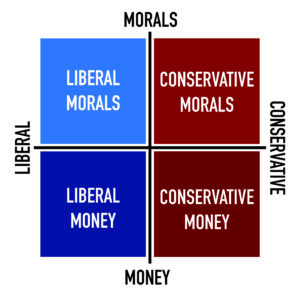In the wake of the One Big Beautiful Bill’s passage and signing over the July 4th holiday, billionaire and former DOGE head Elon Musk launched his third-party bid,
There was a lot of attention early in the week when it was first launched, but I haven’t heard as much in the past few days.
I agree with many commentators who see a third party as a repeat of the Ross Perot phenomena from the 1990’s. He ran on a balanced budget message but only succeeded in giving us eight years of Bill Clinton.
Perot wasn’t wrong about the national debt, but can that issue get a candidate to 270 electoral votes?
Musk positions his party as centrist. From USA Today,
Through multiple posts and repost on X, Musk has suggested the new party will have centrist policies. He has also described it as tech-centered.
I think the idea is by appealing to “the center” a new party could take 51 percent out of the middle of the electorate. But that appears to assume that voters exist on a one-dimensional line, from liberal to conservative, with a standard distribution around a zero point.
I don’t think that’s how it works. The electorate is at least two-dimensional, with axes based on money (taxing and spending, Musk’s concern) and morals (those divisive social issues: abortion, drugs, LGBTQ+. etc.).
[There’s probably a useful third dimension of insiders v. outsiders, but I’ll save that for another day.]
I read the reference to “tech” as indicating that The America Party is going to adopt a conservative position on taxing and spending (money) but will end up with liberal/libertarian positions on the social issues.
That combination “fiscal conservative/social liberal” is quite popular with a certain segment of the nation’s elite. But I have long believed that this combination has a limited appeal with the general electorate, perhaps no higher than 10 percent.
More than a decade ago, I wrote on this topic under the banner, “The Dead End in the Middle of the Road.” I truly believe that there is not a natural centrist position because the left/right differences are ones of kind and not degree. I wrote the following in 2011.
One path leads to “managed decline”, at best a gentile, shabby chic as we slide from exceptionalism to leading from behind. The other calls for the painful sacrifice required in renewal and rebirth. You can’t be reborn while you are still declining. Politics has become so bitter because we have reached the point where split the difference is no longer possible: it has (or must) become winner take all.
I agree with those who think that the best chance for creating a winning third party is to combine social conservatism with fiscal conservatism. An American version of the “throne” and “altar” populism/nationalism embodied by the Gaullist movement of France might offer a useful model for a politics that is not clearly left or right, but more outsiders against insiders.















